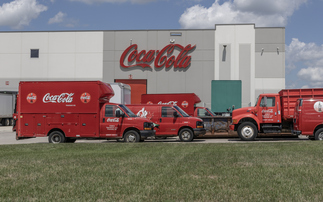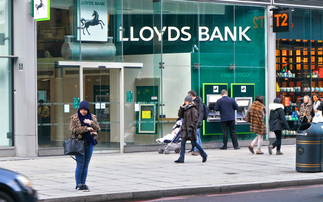Stakeholder engagement is now a key part of many public and private sector projects, particularly around the issue of sustainable development. The past few years have seen a huge shift in business communications as the competitive advantages of two-way dialogue between organisations and their stakeholders are being recognised and exploited. Despite the importance of engaging stakeholders from initial project development stages and the significant benefits of the internet in providing an accessible and flexible platform for such dialogue, many organisations are overlooking the opportunities of online stakeholder engagement. This article explores the effectiveness of the web in designing such consultation in progressing towards corporate sustainability goals.
The past few years have seen sustainability climb the business and political agenda, while consumers face increasing pressure to lead the charge in encouraging socially responsible business behaviour. Where the issue of corporate responsibility was once an add-on to business-as-usual, allowing organisations to generate goodwill towards brands, it is now a matter of legal obligation for many companies in the construction sector. The introduction of the CRC Energy Efficiency Scheme earlier this year along with voluntary projects such as the Carbon Disclosure Project are changing the way that companies measure and report their activities, bringing sustainable development to the fore. It is no longer enough for companies to include sustainability as part of their activities; it must be woven into the fabric of the organisation from toptier strategies.
An important way to build sustainability into organisational thinking and practice is through stakeholder engagement. The significance of consulting with key stakeholders at various points throughout project development is certainly not a new concept, but with the growing demands on companies around accountability and transparency, businesses wanting to stay ahead of competitors need to change their approach to stakeholder communication. Online communication toolkits, such as StakeholderTALK, utilise the web as a platform for such two-way stakeholder dialogue.
Building trust
Stakeholder engagement has traditionally taken place through offline methods such as face-to-face meetings, focus group consultations and round-table discussions at various project development phases. This type of stakeholder dialogue has been effective in enabling organisations to mitigate risk and build trust in the company by encouraging consumer or community buy-in and ownership.
Organisations that involve stakeholders from the initial planning phases of projects will reap the benefits of more accurate and considered decision-making processes. Widening the pool of expertise will not only reduce risks associated with local community or business rejection of projects, but will ensure that better decisions are made.
This is an especially important link between sustainability and innovation. Stakeholder engagement is often associated with additional costs, in terms of time, money and resources. However, in consulting and engaging with key stakeholders, businesses will find that the innovation pay-offs are significant.
Online potential
Construction companies have traditionally been criticised for their approach to IT. Where other businesses have welcomed the opportunities offered by the web, the construction industry has been slower to realise its potential.
The developments taking place in online communications have changed the way organisations are able to interact with their key stakeholders. Online stakeholder engagement is now a crucial mechanism for those wanting to build long-term, dynamic relationships with stakeholders, allowing them to move beyond the limitations of offline consultation.
Online engagement, unlike its offline counterpart, offers continuously accessible communication channels. The web is available anytime from anywhere, overcoming the limitations of time and distance that may otherwise deter participation in engagement. It also provides stakeholders with a level platform from which to partake in dialogue. This is particularly useful in allowing for anonymity which may encourage greater stakeholder involvement.
Targeted communications
Organisations are no longer restricted to mass communication campaigns; online stakeholder engagement tools enable businesses to present vast amounts of information in an easily searchable format, allowing individuals to find the information most relevant to them. Tools such as online evidence databases present key stakeholders with a searchable database of case studies, providing well-targeted, interactive information that is useful to stakeholders.
A good example is the Morgan Sindall Group's sustainability case study engine, whichprovides stakeholders with proof of best practice across divisions, enabling Morgan Sindall to communicate its commitments to sustainability in a targeted and meaningful way. The case studies are categorised based on ‘aspect of sustainability' and ‘company', and can be searched based on these categories. Each case study has a consistent format, as well as a downloadable PDF version.
Multi-stakeholder dialogue
Businesses now also have opportunities to create communication networks that support two-way dialogue with multiple stakeholders. The web enables messages to be targeted at and delivered to various stakeholders with differing interests who are then able to give instant feedback. The ability of the web to measure and evaluate both quantitative and qualitative information enables businesses to not only collect stakeholder opinions, but to effectively engage with them in decision making and problem solving.
Multi-stakeholder dialogue can be developed using online tools such as engagement hubs or portals. A recent example of such a hub in the public sector is the Waveney Pathfinder project, led by Waveney District Council in partnership with Suffolk County Council and the Suffolk Coastal Futures project, focusing on coastal frontages at Corton and Easton Bavents. The Coastal Change Hub is an important tool used in the project to engage with local communities in managing the effects of coastal erosion. The hub works as a focal point for the provision of information such as fact sheets, video clips and technical reports, communication from the project team and feedback from local communities through forums and online surveys. The outputs of the project will be the production of reports identifying short- to long-term options for how coastal change can be managed. While offline stakeholder engagement in such a project is important, online communication tools enhance the effectiveness of offline two-way dialogue with multiple stakeholders.
The future of successful communication
As the web becomes increasingly sophisticated, providing organisations with an abundance of communication tools, the challenge for construction companies is to reap the benefits in exploiting these opportunities. Creating ongoing dynamic relationships with key stakeholders, using online toolkits will help minimise risks associated with consumer rejection, build trust in the company and improve the quality of decision making, leading the way to innovation.
The competitive advantages gained by organisations already building long-term online engagement with stakeholders demonstrate that the web is the most effective way forward for successful corporate communication. As the pressure for accountability and transparency in the construction sector increases and consumer demand for sustainable business practices grows, companies that do not embrace the opportunities of online stakeholder engagement will be left behind in the march towards sustainability.
Erika Roshdi specialises in sustainability communications at IMS Consulting, a company that develops and delivers sustainability communication strategies






